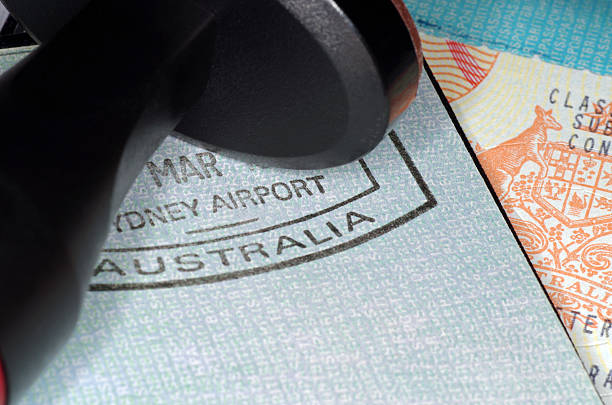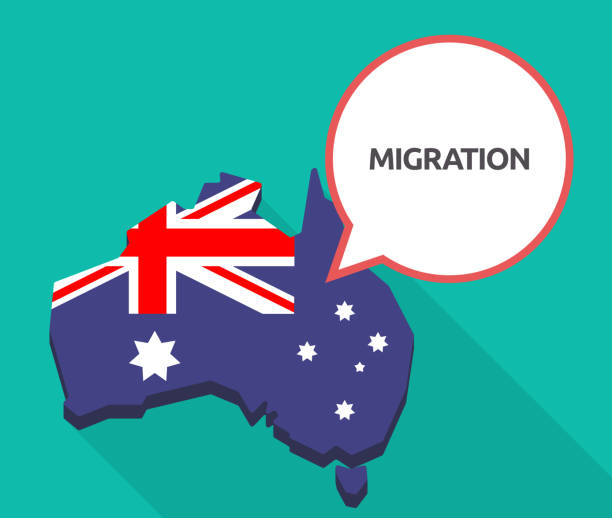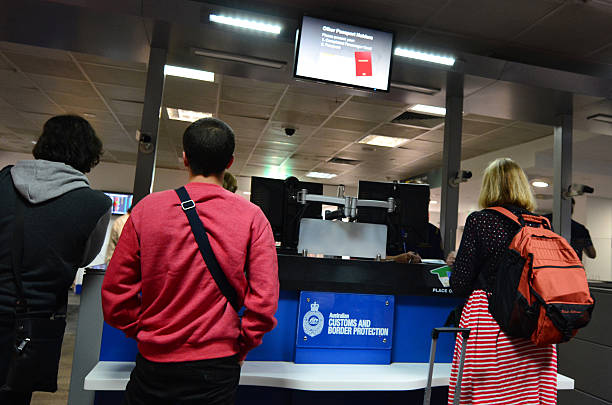In this article, we will discuss the topic of regional processing under the Migration Act (1958). The Australia Government maintains regional processing arrangements for unauthorised maritime arrivals. For example, Nauru hosts some unauthorised maritime arrivals who have the permission to remain until their departure.
In this article, we will provide an overview of the following Sections:
Section 198AA: Reason for Subdivision
The rationale behind this subdivision stems from the Parliament’s recognition that:
- Addressing the issue of people smuggling, with its significant regional repercussions such as the loss of lives at sea, is important.
- Allowing the transfer of unauthorised maritime arrivals, including those for whom Australia has or may have obligations under the Refugees Convention and its Protocol, to any designated regional processing country is crucial.
- The Minister and Parliament can determine which countries to designate as regional processing countries.
- The designation of a country as a regional processing country does not necessarily hinge on that country’s adherence to international obligations or domestic laws.
Section 198AB: Regional Processing Country
The Minister holds the authority, through a legislative instrument, to designate a country as a regional processing country.
(1A) The legislative instrument under subsection (1):
- (a) Can designate only a single country.
- (b) Must not stipulate an expiration for the designation.
(1B) Despite subsection 12(1) of the Legislation Act 2003, the commencement of the legislative instrument under subsection (1) occurs at the earlier of:
- (a) Immediately after both Houses of Parliament pass a resolution approving the designation.
- (b) Immediately after meeting these conditions:
- A copy of the designation has been presented before each House of Parliament under section 198AC.
- Five sitting days of each House have passed since its presentation without a resolution disapproving the designation.
(2) The Minister’s exercise of power under subsection (1) is subject only to the condition that designating the country as a regional processing country is in the national interest.
Furthermore, according to (3), when evaluating the national interest per subsection (2), the Minister:
- Must consider whether the country has provided assurances to Australia that:
- It won’t expel or return a person taken under section 198AD to another country where their life or freedom could be threatened based on race, religion, nationality, social group membership, or political opinion.
- It will conduct or permit an assessment to determine if a person taken under that section fits the refugee definition in Article 1A of the Refugees Convention as amended by the Refugees Protocol.
- May consider any other matter deemed by the Minister to be relevant to the national interest.
Additional Provisions
(4) The assurances mentioned in paragraph (3)(a) need not be legally binding.
(5) Only the Minister personally can exercise the power under subsection (1).
(6) If the Minister designates a country under subsection (1), they can, through a legislative instrument, revoke the designation.
(7) The principles of natural justice do not apply to the exercise of power under subsections (1) or (6).
(9) In this section, ‘country’ encompasses:
- A colony, overseas territory, or protectorate of a foreign country.
- An overseas territory for which a foreign country bears international relations responsibility.

Section 198AC: Documents to be Laid Before Parliament
This section becomes relevant if the Minister designates a country as a regional processing country under subsection 198AB(1).
(2) The Minister must ensure that the following documents are presented before each House of Parliament:
- (a) A copy of the designation.
- (b) A statement elucidating the Minister’s rationale for believing it’s in the national interest to designate the country as a regional processing country, specifically mentioning any assurances akin to those in paragraph 198AB(3)(a) provided by the country.
- (c) A copy of any written agreement between Australia and the country concerning the transfer of individuals to that country.
- (d) A report detailing the Minister’s consultations with the Office of the United Nations High Commissioner for Refugees regarding the designation, including the nature of these consultations.
- (e) A summary of any advice received from the Office of the United Nations High Commissioner for Refugees concerning the designation.
- (f) Information about any existing or planned arrangements in the country for the treatment of individuals transferred there.
(3) The Minister must comply with subsection (2) within two sitting days of each House of Parliament following the day on which the designation is made.
(4) The sole objective of presenting the mentioned documents to Parliament is to inform Parliament about their contents, and the presence or absence of these documents does not impact the validity of the designation. Similarly, the absence of some or all of these documents does not affect the validity of the designation.
(5) Non-compliance with this section does not invalidate the designation.
(6) In this section, ‘agreement’ encompasses any formal or informal arrangement, whether legally binding or not, established before, on, or after the initiation of this section.
Section 198AD: Taking Unauthorised Maritime Arrivals to a Regional Processing Country
(1) This section applies to an unauthorised maritime arrival detained under section 189, except as specified in sections 198AE, 198AF, and 198AG.
Note: For instances where this section pertains to a transitory person, refer to section 198AH.
(2) An officer must promptly transport an unauthorised maritime arrival, to whom this section applies, from Australia to a regional processing country as soon as reasonably feasible.
(2A) However, subsection (2) does not apply to an individual classified as an unauthorised maritime arrival solely due to subsection 5AA(1A) or (1AA) if the person’s parent mentioned in the relevant subsection entered Australia before August 13, 2012.
Note 1: According to subsection 5AA(1A) or (1AA), a person born in Australia or in a regional processing country might be considered an unauthorised maritime arrival in specific circumstances.
Note 2: This section doesn’t apply to a person who entered Australia by sea before August 13, 2012; refer to the Migration Legislation Amendment (Regional Processing and Other Measures) Act 2012.
Powers of an officer
(3) For the purpose of subsection (2) and without limiting its scope, an officer, within or outside Australia, may perform any or all of the following actions:
- (a) Place the unauthorised maritime arrival on a vehicle or vessel.
- (b) Restrain the unauthorised maritime arrival on a vehicle or vessel.
- (c) Remove the unauthorised maritime arrival from:
- (i) the place of detention; or
- (ii) a vehicle or vessel.
- (d) Use necessary and reasonable force.
(4) If, during the transfer of an unauthorised maritime arrival to a regional processing country, an officer deems it necessary to return them to Australia:
- (a) Subsection (3) applies until the individual is back in Australia.
- (b) Section 42 (related to return to Australia) doesn’t apply.
Additional Provisions
Ministerial direction
(5) If there are two or more regional processing countries, the Minister must, in writing, instruct an officer to transport an unauthorised maritime arrival or a group of such arrivals, under subsection (2), to the regional processing country specified in the Minister’s direction.
(6) An officer must comply with the Minister’s direction under subsection (5).
(7) Only the Minister personally must fulfil the obligation outlined in subsection (5).
(8) The only prerequisite for this obligation under subsection (5) is the Minister’s belief that it’s in the public interest to instruct the officer to transport an unauthorised maritime arrival or a group thereof, under subsection (2), to the specified regional processing country.
(9) The rules of natural justice don’t apply to fulfilling the obligation under subsection (5).
(10) A direction under subsection (5) isn’t considered a legislative instrument.
Not in immigration detention
(11) An unauthorised maritime arrival undergoing actions described in subsection (3) is deemed not to be in immigration detention (as defined in subsection 5(1)).
Meaning of officer
(12) In this section, officer refers to an officer as defined in section 5. This includes a member of the Australian Defence Force.

Seeking Advice from Immigration Lawyers
Under Section 46 of the Migration Act, unauthorised maritime arrivals are barred from applying for a visa. Are you or someone you know facing immigration issues in Australia? We recommend that you reach out to our friendly and experienced lawyers for assistance.
Do you wish to change your visa condition and apply for a new visa? We can also help you with these matters. Whether you are applying for permanent residency, citizenship, partner visa or work visa, we can help you.
Contact our team today for more information.
